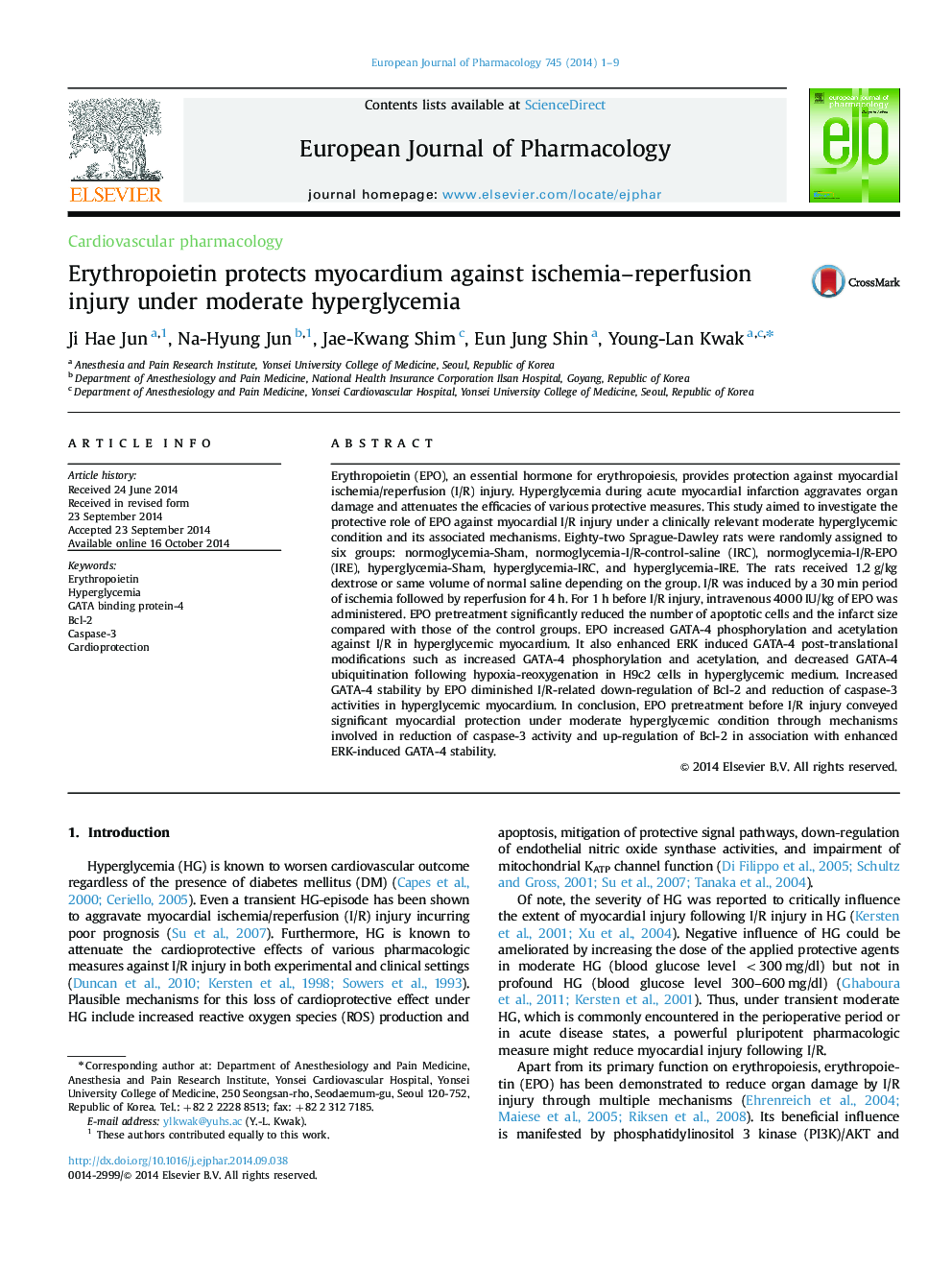| Article ID | Journal | Published Year | Pages | File Type |
|---|---|---|---|---|
| 5827708 | European Journal of Pharmacology | 2014 | 9 Pages |
Abstract
Erythropoietin (EPO), an essential hormone for erythropoiesis, provides protection against myocardial ischemia/reperfusion (I/R) injury. Hyperglycemia during acute myocardial infarction aggravates organ damage and attenuates the efficacies of various protective measures. This study aimed to investigate the protective role of EPO against myocardial I/R injury under a clinically relevant moderate hyperglycemic condition and its associated mechanisms. Eighty-two Sprague-Dawley rats were randomly assigned to six groups: normoglycemia-Sham, normoglycemia-I/R-control-saline (IRC), normoglycemia-I/R-EPO (IRE), hyperglycemia-Sham, hyperglycemia-IRC, and hyperglycemia-IRE. The rats received 1.2Â g/kg dextrose or same volume of normal saline depending on the group. I/R was induced by a 30Â min period of ischemia followed by reperfusion for 4Â h. For 1Â h before I/R injury, intravenous 4000Â IU/kg of EPO was administered. EPO pretreatment significantly reduced the number of apoptotic cells and the infarct size compared with those of the control groups. EPO increased GATA-4 phosphorylation and acetylation against I/R in hyperglycemic myocardium. It also enhanced ERK induced GATA-4 post-translational modifications such as increased GATA-4 phosphorylation and acetylation, and decreased GATA-4 ubiquitination following hypoxia-reoxygenation in H9c2 cells in hyperglycemic medium. Increased GATA-4 stability by EPO diminished I/R-related down-regulation of Bcl-2 and reduction of caspase-3 activities in hyperglycemic myocardium. In conclusion, EPO pretreatment before I/R injury conveyed significant myocardial protection under moderate hyperglycemic condition through mechanisms involved in reduction of caspase-3 activity and up-regulation of Bcl-2 in association with enhanced ERK-induced GATA-4 stability.
Related Topics
Life Sciences
Neuroscience
Cellular and Molecular Neuroscience
Authors
Ji Hae Jun, Na-Hyung Jun, Jae-Kwang Shim, Eun Jung Shin, Young-Lan Kwak,
